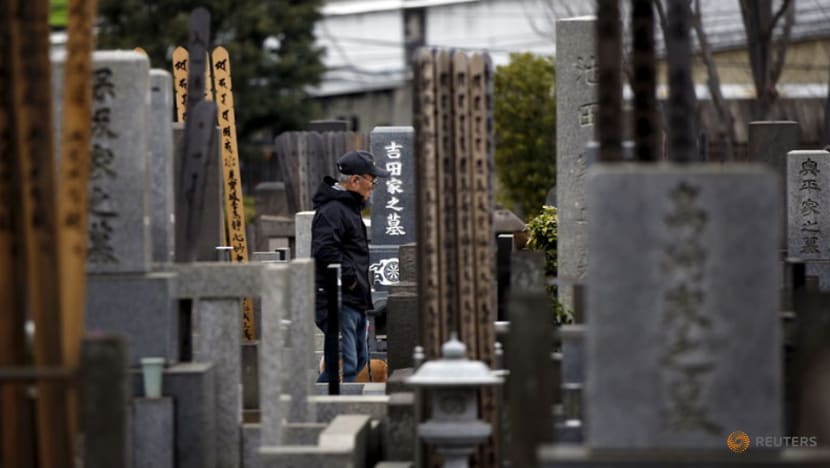commentary Commentary
Commentary: Keeping the deceased alive online has changed how we grieve
Social networking sites keep those who have since passed on 'alive', and allow people to mourn from the comfort of their own home, says one observer.

Tearful fans gather to visit the mourning altar for Kim Jong-Hyun, a 27-year-old lead singer of the massively popular K-pop boyband SHINee, at a hospital in Seoul on December 19, 2017. (Photo: AFP/Jung Yeon-je)
HULL, United Kingdom: People don’t die in the same way they used to.
In the past, a relative, friend, partner would pass away, and in time, all that would be left would be memories and a collection of photographs.
These days, the dead continue to be present online and digital encounters with someone who has passed away are becoming a common experience.
Each one of us has a digital footprint – the accumulation of our online activity that chronicles a life lived online through blogs, pictures, games, web sites, networks, shared stories and experiences.
When a person dies, their “virtual selves” remain out there for people to see and interact with.
These virtual selves exist in the same online spaces that many people use every day. And this is a new and unfamiliar phenomenon that some people might find troubling – previously dead people were not present in this way.
Yet for some, these spaces have become a valuable tool – especially so for the bereaved.
An emerging body of research is now looking at the ways the internet, including social media and memorial websites, are enabling new ways of grieving – that transcend traditional notions of “letting go” and “moving on”.
READ: Contemplating the future of dying, a commentary
DEALING WITH LOSS ON SOCIAL MEDIA
Turning to social media for support when dealing with bereavement and the loss of a loved one helps mourners and others make sense of a death by talking about it. This helps to make it a much less isolating experience.

For many mourners, the most important motivating factor seems to be the need to stay connected to the deceased and to “keep them alive”.
Keeping a Facebook page going by actively maintaining the “in life” profile of the deceased, or creating a new “in memorial” profile, allows users to send private or public messages to the deceased and to publicly express their grief.
The use of social media in this way goes some way towards answering the question of where to put one’s feelings – such as love, grief, guilt – after a death.
Many people turn to the same sites to promote awareness and fund raising for various charities in memory of their loved ones.
KEEEPING THE DEAD ‘ALIVE’
In this sense then, keeping the deceased alive on Facebook is a way of working against loss.
It illustrates how social networking sites are replacing traditional mourning objects – such as items of jewellery, clothing or gravestones – that are imbued with particular emotional resonance and which subsequently take on additional significance after the death.

Unlike sentimental objects, social media pages and online spaces allow people to explore grief with others from the comfort of their own home.
Talking to people online can also help to free up some of the inhibitions that are otherwise felt when talking about loss – it enables forms of uncensored self-expression that are not comparable with face-to-face conversations.
So although the physical bond to a loved one may be gone, a virtual presence remains and evolves after death.
In this way, online memorial sites and social networking spaces help the bereaved to see how events in the past can continue to have value and meaning in the present and the future.
Dr Jo Bell is senior lecturer at the University of Hull. A version of this commentary first appeared on The Conversation. Read the original here.
















